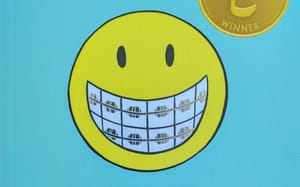Today’s Observer has a list of the world’s 50 most powerful blogs. There is no indication of how it was put together.
I wasn’t familiar with all of the 50. No great surprises in the top few (Huffington, Boing Boing, Techcrunch, Kottke). I was surprised to see Crooked Timber on the list at number 33.
Papers are full of lists now; they are sometimes fun to read and, in some cases, probably fun to compile. They are also cheap, and ideally suited to attract some network discussion.
I saw this article just after I had read John Lanchester’s review of Nick Davies’ Flat Earth News, a description of how papers now do less original reporting and fact checking as they have to fill more space with fewer journalists (think of the supplements, website, …). It makes for depressing reading.
Nick Davies’s Flat Earth News, however, is a genuinely important book, one which is likely to change, permanently, the way anyone who reads it looks at the British newspaper industry. Davies’s book explains something easy to notice and complain about but hard to understand: the sense of the increasing thinness and attenuation of the British press. It’s not literal thinness: the papers, physically, are bigger than ever. There just seems to be less in them than there once was: less news, less thought (as opposed to opinion), less density of engagement, less time spent finding things out. Davies looks into all those questions, confirms that the impression of thinness is correct, explains how this came about, and offers no hope that things will improve. [LRB · John Lanchester: Riots, Terrorism etc]
Coincidentally, I was flicking through an old Economist later and found another review.
Citing research done by Cardiff University, Mr Davies argues that the number of journalists in Britain is roughly the same today as it was 20 years ago. But the rise of supplements, websites and 24-hour services means that the same number of reporters must now fill three times as much space. The result he dubs “churnalism”: more demand for copy means more time spent in airless offices and less spent out and about gathering stories. That, he says, makes reporters vulnerable to the “hidden persuaders”—PR firms, press offices and advertisers—who now seem to have more power and influence than the journalists they ostensibly serve. The same research claims that 60% of stories in Britain’s quality papers are either recycled press-agency copy or rehashes of PR releases. [British journalism | Hacks at work | Economist.com]
“Churnalism” – a good name for some of these lists.
Something to return to in future posts ….
Related entry:



